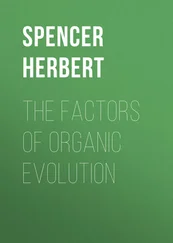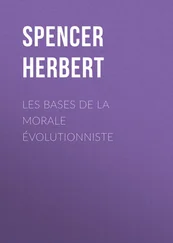Herbert Spencer - Illustrations of Universal Progress - A Series of Discussions
Здесь есть возможность читать онлайн «Herbert Spencer - Illustrations of Universal Progress - A Series of Discussions» — ознакомительный отрывок электронной книги совершенно бесплатно, а после прочтения отрывка купить полную версию. В некоторых случаях можно слушать аудио, скачать через торрент в формате fb2 и присутствует краткое содержание. Жанр: Философия, foreign_antique, foreign_prose, на английском языке. Описание произведения, (предисловие) а так же отзывы посетителей доступны на портале библиотеки ЛибКат.
- Название:Illustrations of Universal Progress: A Series of Discussions
- Автор:
- Жанр:
- Год:неизвестен
- ISBN:нет данных
- Рейтинг книги:4 / 5. Голосов: 1
-
Избранное:Добавить в избранное
- Отзывы:
-
Ваша оценка:
- 80
- 1
- 2
- 3
- 4
- 5
Illustrations of Universal Progress: A Series of Discussions: краткое содержание, описание и аннотация
Предлагаем к чтению аннотацию, описание, краткое содержание или предисловие (зависит от того, что написал сам автор книги «Illustrations of Universal Progress: A Series of Discussions»). Если вы не нашли необходимую информацию о книге — напишите в комментариях, мы постараемся отыскать её.
Illustrations of Universal Progress: A Series of Discussions — читать онлайн ознакомительный отрывок
Ниже представлен текст книги, разбитый по страницам. Система сохранения места последней прочитанной страницы, позволяет с удобством читать онлайн бесплатно книгу «Illustrations of Universal Progress: A Series of Discussions», без необходимости каждый раз заново искать на чём Вы остановились. Поставьте закладку, и сможете в любой момент перейти на страницу, на которой закончили чтение.
Интервал:
Закладка:
The immediate results of the disturbance would themselves be sufficiently complex. Besides the numberless dislocations of strata, the ejections of igneous matter, the propagation of earthquake vibrations thousands of miles around, the loud explosions, and the escape of gases; there would be the rush of the Atlantic and Pacific Oceans to supply the vacant space, the subsequent recoil of enormous waves, which would traverse both these oceans and produce myriads of changes along their shores, the corresponding atmospheric waves complicated by the currents surrounding each volcanic vent, and the electrical discharges with which such disturbances are accompanied. But these temporary effects would be insignificant compared with the permanent ones. The complex currents of the Atlantic and Pacific would be altered in direction and amount. The distribution of heat achieved by these ocean currents would be different from what it is. The arrangement of the isothermal lines, not even on the neighbouring continents, but even throughout Europe, would be changed. The tides would flow differently from what they do now. There would be more or less modification of the winds in their periods, strengths, directions, qualities. Rain would fall scarcely anywhere at the same times and in the same quantities as at present. In short, the meteorological conditions thousands of miles off, on all sides, would be more or less revolutionized.
Thus, without taking into account the infinitude of modifications which these changes of climate would produce upon the flora and fauna, both of land and sea, the reader will see the immense heterogeneity of the results wrought out by one force, when that force expends itself upon a previously complicated area; and he will readily draw the corollary that from the beginning the complication has advanced at an increasing rate.
Before going on to show how organic progress also depends upon the universal law that every force produces more than one change, we have to notice the manifestation of this law in yet another species of inorganic progress – namely, chemical. The same general causes that have wrought out the heterogeneity of the Earth, physically considered, have simultaneously wrought out its chemical heterogeneity. Without dwelling upon the general fact that the forces which have been increasing the variety and complexity of geological formations, have, at the same time, been bringing into contact elements not previously exposed to each other under conditions favourable to union, and so have been adding to the number of chemical compounds, let us pass to the more important complications that have resulted from the cooling of the Earth. There is every reason to believe that at an extreme heat the elements cannot combine. Even under such heat as can be artificially produced, some very strong affinities yield, as for instance, that of oxygen for hydrogen; and the great majority of chemical compounds are decomposed at much lower temperatures. But without insisting upon the highly probable inference, that when the Earth was in its first state of incandescence there were no chemical combinations at all, it will suffice our purpose to point to the unquestionable fact that the compounds that can exist at the highest temperatures, and which must, therefore, have been the first that were formed as the Earth cooled, are those of the simplest constitutions. The protoxides – including under that head the alkalies, earths, &c. – are, as a class, the most stable compounds we know: most of them resisting decomposition by any heat we can generate. These, consisting severally of one atom of each component element, are combinations of the simplest order – are but one degree less homogeneous than the elements themselves. More heterogeneous than these, less stable, and therefore later in the Earth's history, are the deutoxides, tritoxides, peroxides, &c.; in which two, three, four, or more atoms of oxygen are united with one atom of metal or other element. Higher than these in heterogeneity are the hydrates; in which an oxide of hydrogen, united with an oxide of some other element, forms a substance whose atoms severally contain at least four ultimate atoms of three different kinds. Yet more heterogeneous and less stable still are the salts; which present us with compound atoms each made up of five, six, seven, eight, ten, twelve, or more atoms, of three, if not more, kinds. Then there are the hydrated salts, of a yet greater heterogeneity, which undergo partial decomposition at much lower temperatures. After them come the further-complicated supersalts and double salts, having a stability again decreased; and so throughout. Without entering into qualifications for which we lack space, we believe no chemist will deny it to be a general law of these inorganic combinations that, other things equal , the stability decreases as the complexity increases.
And then when we pass to the compounds of organic chemistry, we find this general law still further exemplified: we find much greater complexity and much less stability. An atom of albumen, for instance, consists of 482 ultimate atoms of five different kinds. Fibrine, still more intricate in constitution, contains in each atom, 298 atoms of carbon, 40 of nitrogen, 2 of sulphur, 228 of hydrogen, and 92 of oxygen – in all, 660 atoms; or, more strictly speaking – equivalents. And these two substances are so unstable as to decompose at quite ordinary temperatures; as that to which the outside of a joint of roast meat is exposed. Thus it is manifest that the present chemical heterogeneity of the Earth's surface has arisen by degrees, as the decrease of heat has permitted; and that it has shown itself in three forms – first, in the multiplication of chemical compounds; second, in the greater number of different elements contained in the more modern of these compounds: and third, in the higher and more varied multiples in which these more numerous elements combine.
To say that this advance in chemical heterogeneity is due to the one cause, diminution of the Earth's temperature, would be to say too much; for it is clear that aqueous and atmospheric agencies have been concerned; and, further, that the affinities of the elements themselves are implied. The cause has all along been a composite one: the cooling of the Earth having been simply the most general of the concurrent causes, or assemblage of conditions. And here, indeed, it may be remarked that in the several classes of facts already dealt with (excepting, perhaps, the first), and still more in those with which we shall presently deal, the causes are more or less compound; as indeed are nearly all causes with which we are acquainted. Scarcely any change can with logical accuracy be wholly ascribed to one agency, to the neglect of the permanent or temporary conditions under which only this agency produces the change. But as it does not materially affect our argument, we prefer, for simplicity's sake, to use throughout the popular mode of expression.
Perhaps it will be further objected, that to assign loss of heat as the cause of any changes, is to attribute these changes not to a force, but to the absence of a force. And this is true. Strictly speaking, the changes should be attributed to those forces which come into action when the antagonist force is withdrawn. But though there is an inaccuracy in saying that the freezing of water is due to the loss of its heat, no practical error arises from it; nor will a parallel laxity of expression vitiate our statements respecting the multiplication of effects. Indeed, the objection serves but to draw attention to the fact, that not only does the exertion of a force produce more than one change, but the withdrawal of a force produces more than one change. And this suggests that perhaps the most correct statement of our general principle would be its most abstract statement – every change is followed by more than one other change.
Читать дальшеИнтервал:
Закладка:
Похожие книги на «Illustrations of Universal Progress: A Series of Discussions»
Представляем Вашему вниманию похожие книги на «Illustrations of Universal Progress: A Series of Discussions» списком для выбора. Мы отобрали схожую по названию и смыслу литературу в надежде предоставить читателям больше вариантов отыскать новые, интересные, ещё непрочитанные произведения.
Обсуждение, отзывы о книге «Illustrations of Universal Progress: A Series of Discussions» и просто собственные мнения читателей. Оставьте ваши комментарии, напишите, что Вы думаете о произведении, его смысле или главных героях. Укажите что конкретно понравилось, а что нет, и почему Вы так считаете.












